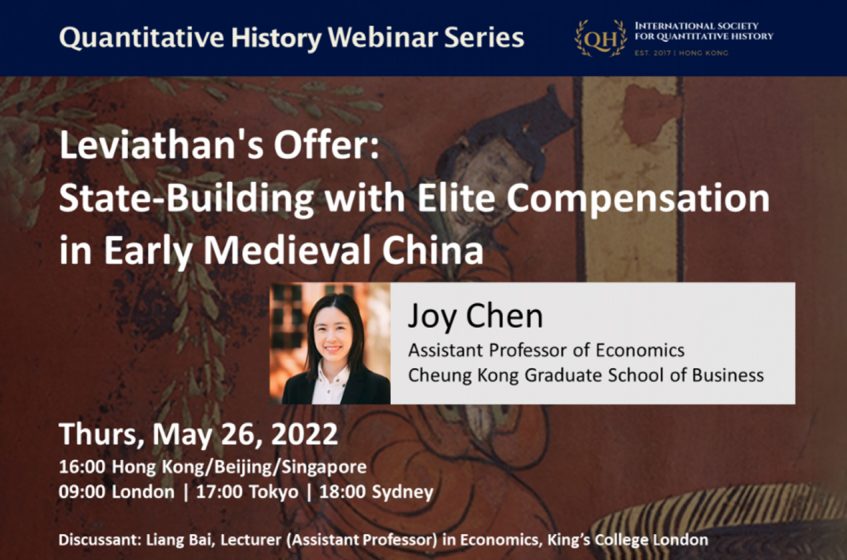
Leviathan’s Offer: State-Building with Elite Compensation in Early Medieval China
Leviathan’s Offer: State-Building with Elite Compensation in Early Medieval China
How can the resistance of failed reformers to state-building efforts be softened? Joy Chen of Cheung Kong Graduate School of Business and her co-authors, in their latest work, highlight a strategy of compensation through bureaucracy, whereby rulers offered meaningful government positions in exchange for elite acceptance of state-building reforms. They empirically investigate this strategy in the context of the Northern Wei (386-534 AD), which brought to an end an era of state decline in early medieval China that was initially caused by entrenched landowner interests and fragile barbarian kingdoms. Their unique dataset combines the geocoded family backgrounds and occupational histories of some 2,600 elites with information on medieval Chinese strongholds, which they use to infer state weaknesses.
Using the comprehensive state-building reforms of the late 5th century, difference-in-differences estimates document that the reforms led to a sustained, substantial increase in the total number of powerful aristocrats from places with strongholds who were recruited into the imperial bureaucracy. Subsequent estimates provide evidence for three mechanisms through which compensation facilitates state-building. First, the offices held by these elites came with direct benefits of power and prestige. Second, by transforming these aristocrats from local strongmen to national stakeholders, these positions had the potential to induce a realignment of their interests towards those of the dynasty. Third, the bureaucracy provided the regime with institutional tools for power-sharing to mitigate credible commitment problems.
In this Quantitative History Webinar, Joy Chen will discuss their findings which shed light on the causes of the ‘First Great Divergence’, where similar barbarian invasions at similar times led to political fragmentation in Europe, but further consolidation of the state in China.
Joy’s co-authors: Erik H. Wang (Australian National University) and Xiaoming Zhang (University of Hong Kong)
Discussant: Liang Bai, Lecturer (Assistant Professor) in Economics, King’s College London
Live on Zoom on May 26, 2022
16:00 Hong Kong/Beijing/Singapore
09:00 London | 17:00 Tokyo | 18:00 Sydney
Calculate your local time
The Quantitative History Webinar Series, convened by Professor Zhiwu Chen and Dr. Chicheng Ma of The University of Hong Kong (HKU), aims to provide researchers, teachers and students with an online intellectual platform to keep up to date with the latest research in the field, promoting the dissemination of research findings and interdisciplinary use of quantitative methods in historical research. The Series is co-organized by the International Society for Quantitative History, HKU Business School, and the Asia Global Institute (AGI).
Conveners:
Professor Zhiwu Chen
Dr. Chicheng Ma







